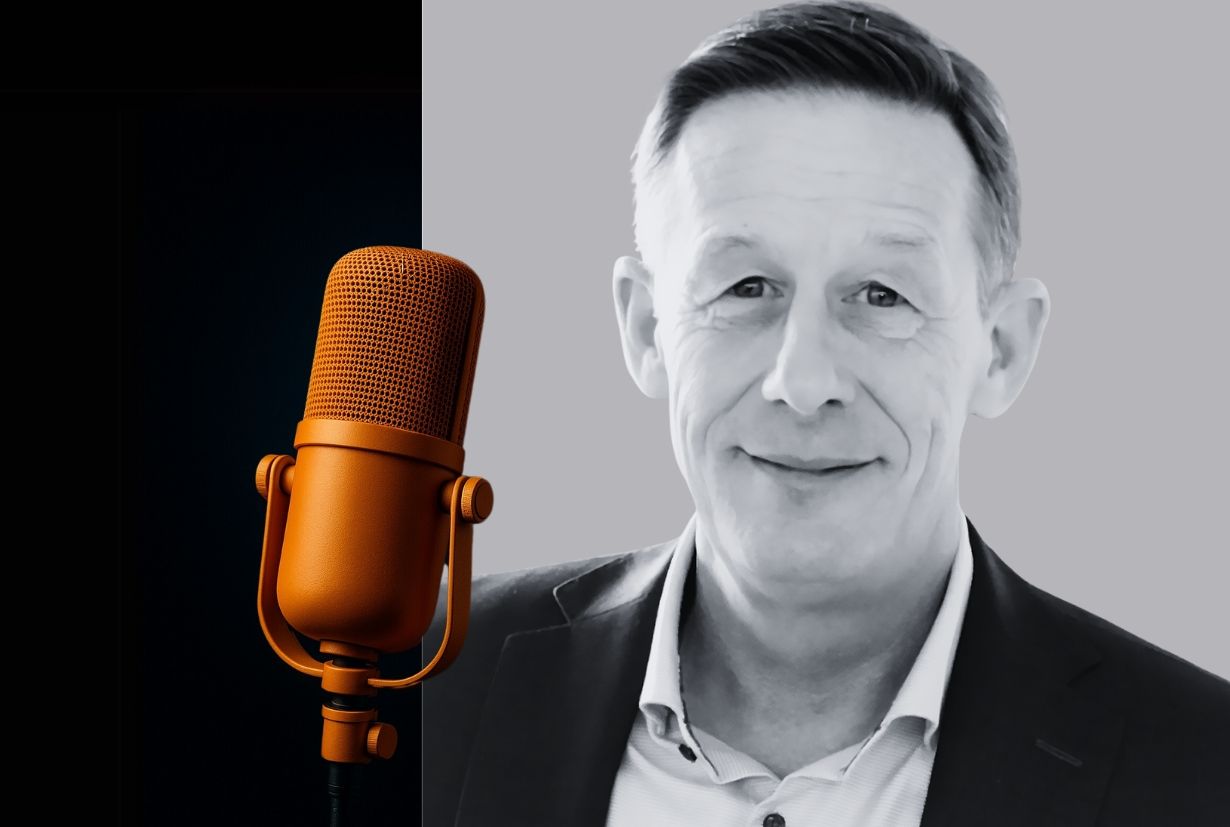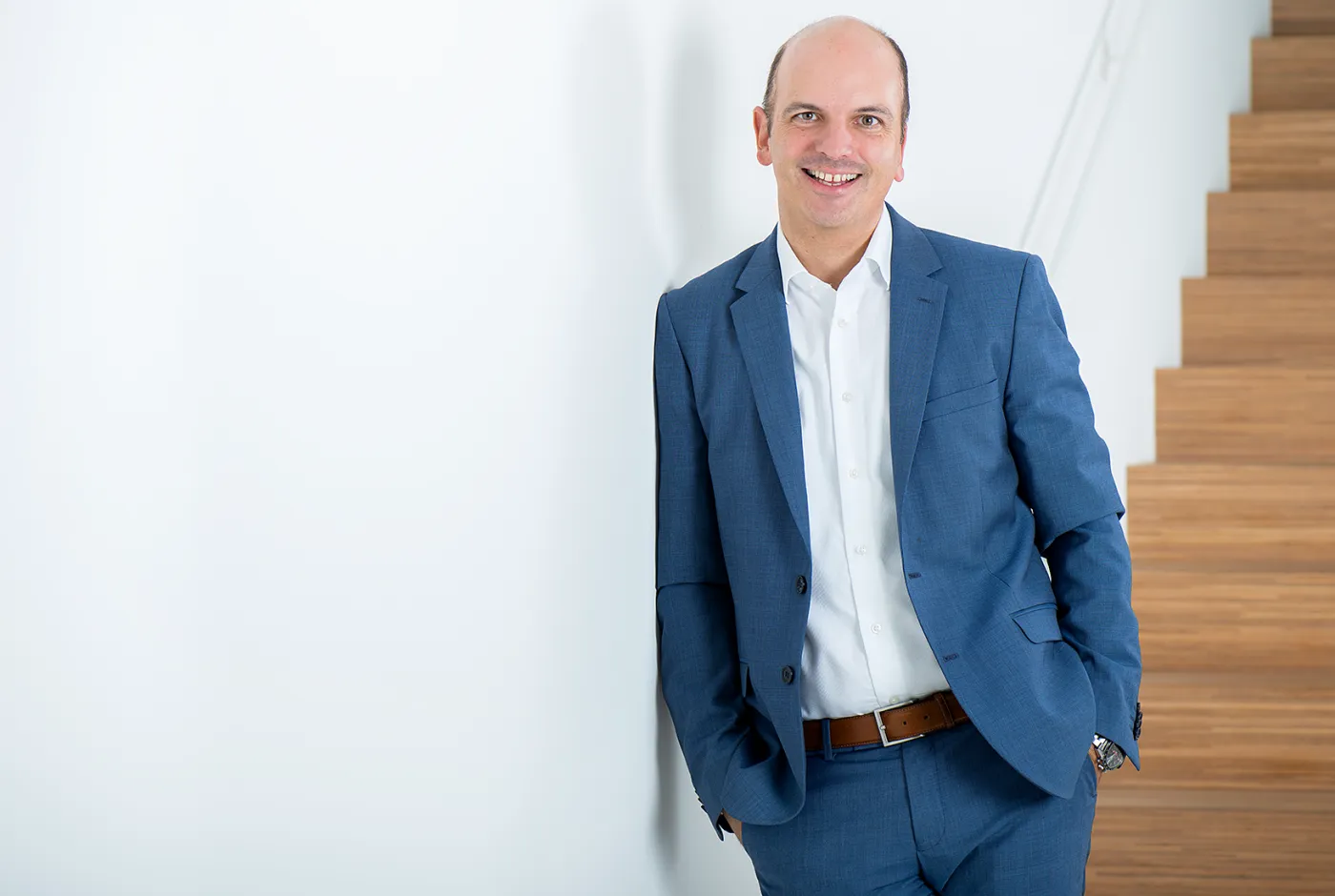In Conversation: Dr. Roger Huber on Assessments in Executive Search
What Successful Leadership Has to Do with Empathy, Responsibility, and Self-Reflection

from Dr. Elena D’Cruz
12. October 2025

Hiring decisions at executive level have far-reaching consequences. The recruitment process is complex and goes far beyond matching CVs. Often, it is the inner attitude – the Executive Mindset – that determines whether a leader truly fits a role and an organization. It’s about reading between the lines and making potential visible.
One expert in this field is our long-standing partner Dr. Roger Huber, PhD psychologist and founder of xls – exclusive leadership support GmbH. For over 15 years, he has guided companies through sensitive selection processes – with sound diagnostics, potential analyzes, and as a trusted sparring partner in decision-making.
We met with Dr. Roger Huber to talk about assessments, people skills, leadership responsibility, and the art of being a good host.
An Assessment Is a Mirror, Not a Verdict
When Roger Huber conducts an assessment, the room is already prepared. Documents are ready, drinks are set out, the seating arrangement is carefully chosen. Not for him, but for the person who is about to enter the room. They bring visible tension – because it is about them. And often it is about a lot.
Coopers: Roger, you say an assessment is not a verdict, but a mirror. What exactly do you mean by that?
RH: An assessment is an external image of a person that – like a mirror – shows as realistically as possible who they are. To achieve that, you have to immerse yourself in the person’s world and create an environment that allows them to show themselves.
The 4 Elements of Effective Leadership
Roger Huber’s path into psychology was shaped by a few detours. After a brief stint in chemistry, he realized that it was not substances but people that fascinated him – more precisely, their behavior in organizations and leadership roles.
Coopers: Which stages particularly shaped you along this path?
RH: Various experiences: As a football coach during my school years, I learned how to lead a team while paying attention to each individual. In the military, I realized how closely care and performance are connected – if someone does not eat or sleep, they cannot perform. My years at Credit Suisse sharpened my sensitivity in dealing with different decision-makers and cultural dynamics. And as a managing director, I experienced what it means to take full responsibility for results.
Coopers: What mindset do you draw from that in your work today?
RH: For me, there are four elements that define good leadership: first, genuine interest in people. Second, care, meaning responsibility for the well-being of others. Third, a deep understanding of relationships and power structures within organizations. And fourth, a strong sense of accountability. I have experienced all four in my different stages and they continue to shape my work today.
Coopers: And how does that show in your assessments?
RH: I see myself as a host who creates the framework and as a guide who takes responsibility so that potential can unfold. For me, it is not only about fit for the role but also about how someone leads, communicates, deals with pressure and takes responsibility for results.
"Anyone who wants to lead others must first learn to lead themselves."
Assessments in Practice
Coopers: Why assessments?
RH: The purpose of assessments is to create a reliable basis for decision-making: how well does this person fit into my company, into my team? That is my main task. My second task is to describe the person in such a way that they recognize themselves in the described strengths and areas for development.
Coopers: How does an assessment with you work?
RH: There is a fixed structure, but I always tailor the content individually depending on the role, company culture and current challenges. After a detailed client briefing, we design the process and invite the participants personally. Usually, two assessors are involved and we work with interviews, presentations and simulations. At the end of the day, there is an initial feedback session – with three strengths and three areas for development. Both clients and candidates receive a detailed assessment report.
Coopers: What is most important to you in an assessment?
RH: Whether it is executive search or a status analysis, the basic principle is the same: the person must recognize themselves, and the company needs a solid decision-making basis. The methodology supports this, but the dialog remains decisive.
Coopers: You are also active as a coach. How do assessments and coaching differ?
RH: Both deal with a person in a social environment. In assessments, we evaluate the fit; in coaching, it is about deliberately developing behavior. Coaching builds on the assessment analysis and shows how someone can act within this environment.
Coopers: Can you give an example?
RH: In coaching, we often address patterns that make leadership difficult, such as addressing problems, expressing expectations or even something as simple as voice volume. The key is not to see problems as weaknesses but as opportunities for development.
Coopers: Do leaders like to talk about such things?
RH: Clearly, the question about failures is often the most challenging. Our world is very success-oriented, and many leaders find it difficult to talk about the opposite. But this is exactly where the wheat is separated from the chaff: good leadership means dealing with failures in a reflective way.
Coopers: Can this self-reflection be learned?
RH: Yes. You have to consciously allow time, step back and learn to lead yourself – only then can you lead others. Coaching helps to strengthen the positive while at the same time addressing challenges constructively.
Coopers: What else do you pay attention to in assessments?
RH: Above all to accountability. And not only when there is tailwind, but especially in the storm. How willing is someone to make decisions, even when they are uncomfortable? Objectivity is also important: whether in hierarchical or flat structures, you have to work with the team you have.
Collaboration with Coopers Executive
Coopers: What does your collaboration with Coopers Executive look like?
RH: We usually work together on particularly demanding mandates. Openness and transparency are crucial because several parties are involved: line management, HR, Coopers as executive search partner and us as assessors.
Coopers: What happens when there are different assessments?
RH: That is not a problem but an opportunity. We compare impressions: what overlaps? Where are we saying the same thing but in different words? And where are there real differences? This way, we sharpen the profile together.
Coopers: So close collaboration is essential?
RH: Absolutely. Expectation management is key. We have to understand what the client needs and what the success factors are. Coopers brings market and technical expertise, we complement it with behavioral and interactional perspectives. Especially now that there are many good candidates, we have to look even more closely to find the best match.
"Back in the day, the boss was like a little god."
Leadership Today and Tomorrow
Coopers: Roger, how has the image of leadership changed and where is it heading?
RH: In the past, the boss was like a small god. Today, leadership is questioned as a matter of course, especially by younger employees who are more confident and expect reasoning. Leaders have to learn to deal with more headwind.
Coopers: What remains despite this change?
RH: The need to take responsibility. Tasks must be delegated, discussed and monitored. But in the future more on an equal footing and with guidance.
Coopers: Is that also an opportunity?
RH: Definitely. Openness and open-mindedness are key qualities. Young employees often have good ideas but need support in implementation. Experienced leaders can build bridges here – when trust and teamwork are the foundation.
Before We Go...
Coopers: What would be your favorite place for an assessment if it did not have to be a meeting room?
RH: I have actually experienced that once. We were in a abandoned factory hall because the assessment had to remain confidential. It was a particularly intense atmosphere. Otherwise, perhaps a cabin in the mountains. Not a summit, but a place of calm with focus on the person.
Coopers: To finish, a few quick questions:
...head or heart?
RH: Head.
...early bird or night owl?
RH: Both, but preferably early bird.
...structured or spontaneous?
RH: Structure creates room for spontaneity.
...soft skills or hard skills?
RH: Soft skills. Hard skills can be learned.
...straight forward or between the lines?
RH: Straight forward. My job is evidence-based, after all.
Thank you, Roger, for your time and your valuable insights into the world of assessments.
Conclusion & Outlook
The conversation with Roger Huber shows: assessments are not a verdict but a mirror and therefore a valuable foundation for sustainable personnel decisions. They make potential visible, create clarity and open development paths for leaders.
If you would like to learn more about our assessment services or need support in filling a key position, please feel free to contact us. Together we ensure that the right people make an impact in the right places.
Contact us
Feel free to contact us for an initial inquiry if you’d like to learn more about our executive assessments or other executive search services. We work closely with Dr. Huber and are happy to discuss your specific needs to identify the best possible solution.
Christian Biedermann
+41 41 632 43 55
christian.biedermann@coopers.ch
FAQ: Frequently Asked Questions About Assessments and Leadership
An assessment is a structured process used to objectively evaluate the skills, potential, and personality traits of leaders or employees. It provides a solid foundation for well-informed hiring and leadership decisions.
Assessments increase confidence in recruitment and leadership selection. They reveal potential, highlight development areas, and provide a reliable decision-making basis — especially for leadership roles.
Unlike interviews, assessments deliver objective, methodologically sound results. They show not only whether someone fits a role, but also how that person can further develop within it.
An assessment evaluates competencies and role fit. Coaching builds on these insights and supports personal and professional growth based on the assessment results.
Self-reflection is a key element of effective leadership. It shows how realistically a person can assess themselves, take responsibility, and learn from experience — all crucial aspects of strong leadership.
Depending on the goal and position, assessments typically evaluate leadership skills, decision-making ability, communication style, resilience, teamwork, and self-reflection.
An assessment is especially useful when key positions are being filled, succession planning is underway, or development potential needs to be identified.
Coopers Executive combines deep market and industry expertise with the psychological diagnostics of experienced assessors. Together, we create holistic and evidence-based decision foundations for our clients.



_1.svg)